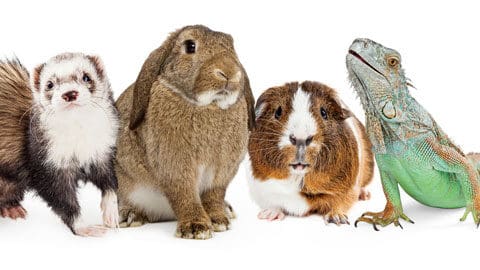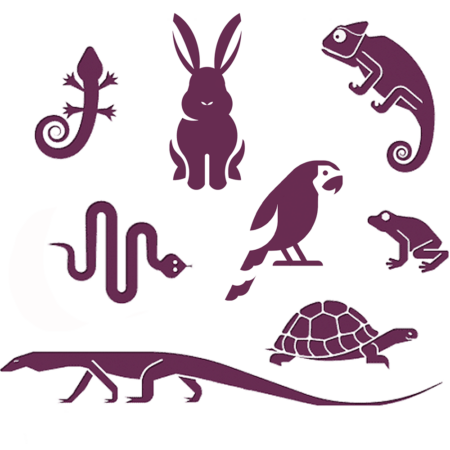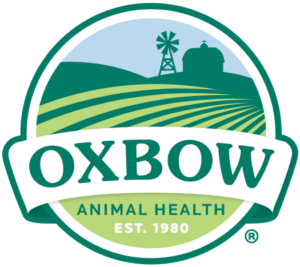Exotic Pets™
sponsored by Zoo Med, ZuPreem, and Oxbow Animal Health.
Did Tracie’s Childhood Rabbit Need Orthodontics?
#253: Dr. Doug Mader explains how important dental care is for all rabbits and what happens when it is neglected. He answers Tracie’s question about whether her childhood veterinarian really did suggest braces for one of her rabbits with buck teeth.
Dr. Doug Talks Turtles (and Tortoises)
#252: Doug talks turtles — and the differences between turtles, tortoises and terrapins. Doug and Tracie reminisce about the “penny turtles” [red eared sliders] they had as kids, and how far we have come with environments designed by ZooMed instead of the little green plastic dishes with a plastic palm tree.
Don’t Monkey Around with Monkeys
#251: Dr. Doug rarely says “don’t” about exotic pet ownership if you’re ready to provide the right environment. But in the case of monkeys, he explains all the reasons why it is impossible to create what a monkey needs at home. He makes clear it is simply wrong on so many levels to have a pet monkey. DON’T DO IT!
Should People Have Birds as Pets At All?
#250: Leading avian and exotic pet veterinarian Dr Laurie Hess raises the ethical question of whether people should have birds as pets at all. Are you giving them a good life? Taking your bird in the shower with you? Playing TV and music he likes? Providing social interaction, UV light, something safe and satisfying to chew on all the time? And can you continue to do that for the 40 years that some of them live?
Ralphie, The Guinea Pig Therapy Pet
#249: Nikki talks about her rare therapy pet Ralphie, an Abyssinian guinea pig with a natural Mohawk “hairdo”, who regularly does therapy visits at an adult forensic psychiatric facility, where he has a positive effect on the population he is working with.
What Kind of Lizard Person are You?
#248: Dr. Karen Rosenthal discusses the ever-popular Australian Bearded Dragon, which stay small, have a pleasing personality (you need to interact with them!), they “color morph” and can be very beautiful, they don’t need to climb and are generally easy to keep. Dr. Karen points out that Nile Monitor lizards are very aggressive, the Savannah Monitor gets large and needs to eat small mammals, and chameleons are the most difficult lizard to keep because — amongst other lifestyle requirements — they need to get their water dripped off the end of a leaf!
Ball Pythons — America’s Favorite Snake
#247: Dr. Doug Mader explains that Ball Pythons are such easy pets, especially as a first snake. For one thing, if they get scared they don’t get aggressive — they roll up into a ball and tuck their head into the middle (“with the bitey parts out of the way,” as Dr Doug puts it.)
How Sick is Your Bird? The Smaller the bird, the Quicker She’ll Get Sick
#246: Avian specialist Dr. Jennifer Graham discusses how birds are prone to respiratory disease and are very sensitive to pollutants in the air — which is why they used to keep canaries in coal mines as a bellwether of air quality. If your bird seems “off,” she says, Do not wait before going to the veterinarian if your bird shows signs of illness! She also says “the smaller the bird, the quicker they get sick.”
Ferrets — the Obligate Hyper-Carnivore
#245: Dr Micah Kohles, the Chief Veterinary Officer for Compana Pet Brands, talks about the specific nutritional needs of rats and ferrets, which are considered “obligate hyper carnivores.” They need meat — and lots of it!
Annual Exams for Exotics Are “An Ounce of Prevention”
#244: Dr. Doug Mader, the author of “The Vet at Noah’s Ark,” explain why an annual exam for exotic pets is so important to catch medical problems early, before they become too costly or life-threatening.











